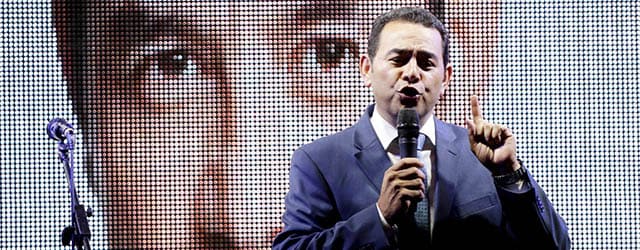Guatemala’s political turmoil, with parties deadlocked in Parliament, a runoff election looming and corruption scandals exploding, means the government will operate in a kind of suspended animation until 2016.

But there’s reason to believe that the economy and foreign direct investment can emerge relatively unscathed.
Guatemalans voted on September 7 to elect a new president, but the lack of a clear majority for any candidate has forced a run-off election on October 25. None of the candidates garnered a clear 50% majority, although comedian-cum-presidential candidate Jimmy Morales took nearly 24% of votes cast.
Days before the election, president Otto Pérez Molina lost his presidential immunity and resigned. He now waits in jail for trial on charges related to an alleged scheme that provided reduced import duties in return for bribes. In May, then-vice-president Roxana Baldetti stepped down but denied taking any kickbacks. She was arrested two months later. Former constitutional judge Alejandro Maldonado replaced her as vice president and will act as interim president until the winner of the run-off takes office in January.
Scandals notwithstanding, the economy appears likely to continue on course, contends Jimena Blanco, London-based principal analyst for Latin America at Verisk Maplecroft. “Despite the country’s high level of common crime and violence, and despite the very recent, ongoing political crisis, Guatemala’s economy is relatively stable,” she says, with estimated growth in gross domestic product at around 4% this year and next. Roughly 50% of Guatemala’s exports go to the United States, and much of its domestic spending comes from remittances. Neither source of income appears threatened, she explains. “Arguably, [remittances] have allowed the government to continue funding its deficit without having to take on much foreign debt.”
For foreign direct investors, corruption and crime pose greater threats than political uncertainty. “The economy continues to grow very strongly despite the political crisis, (but) the entrenched nature of corruption no doubt impacts long-term economic growth potential,” Blanco says.
The Central American Institute for Fiscal Studies says that roughly 30% of the government’s annual budget is susceptible to being diverted through corrupt or unethical practices. High levels of crime and gang-related violence also deter capital spending by businesses, she says. “The direct cost of violence is 8.7% of GDP.”



